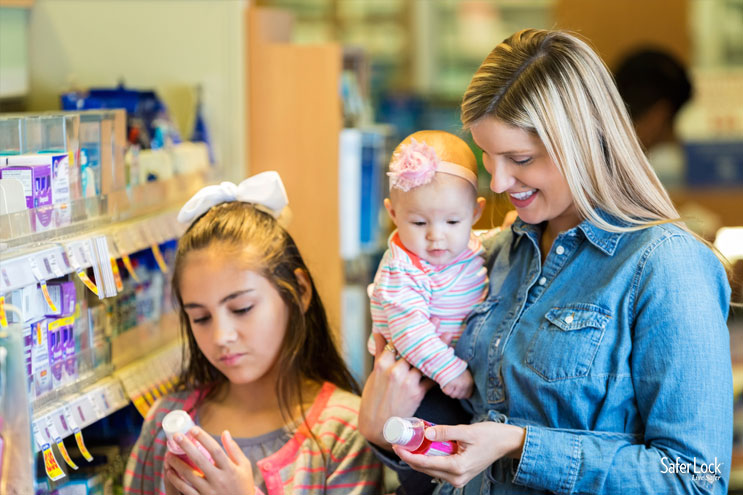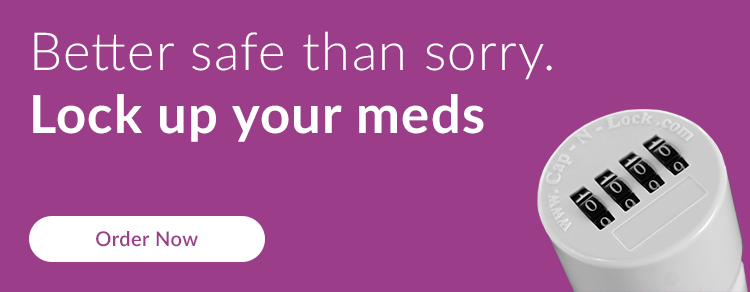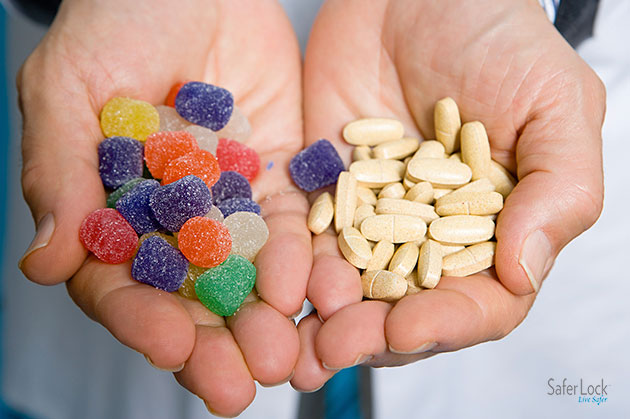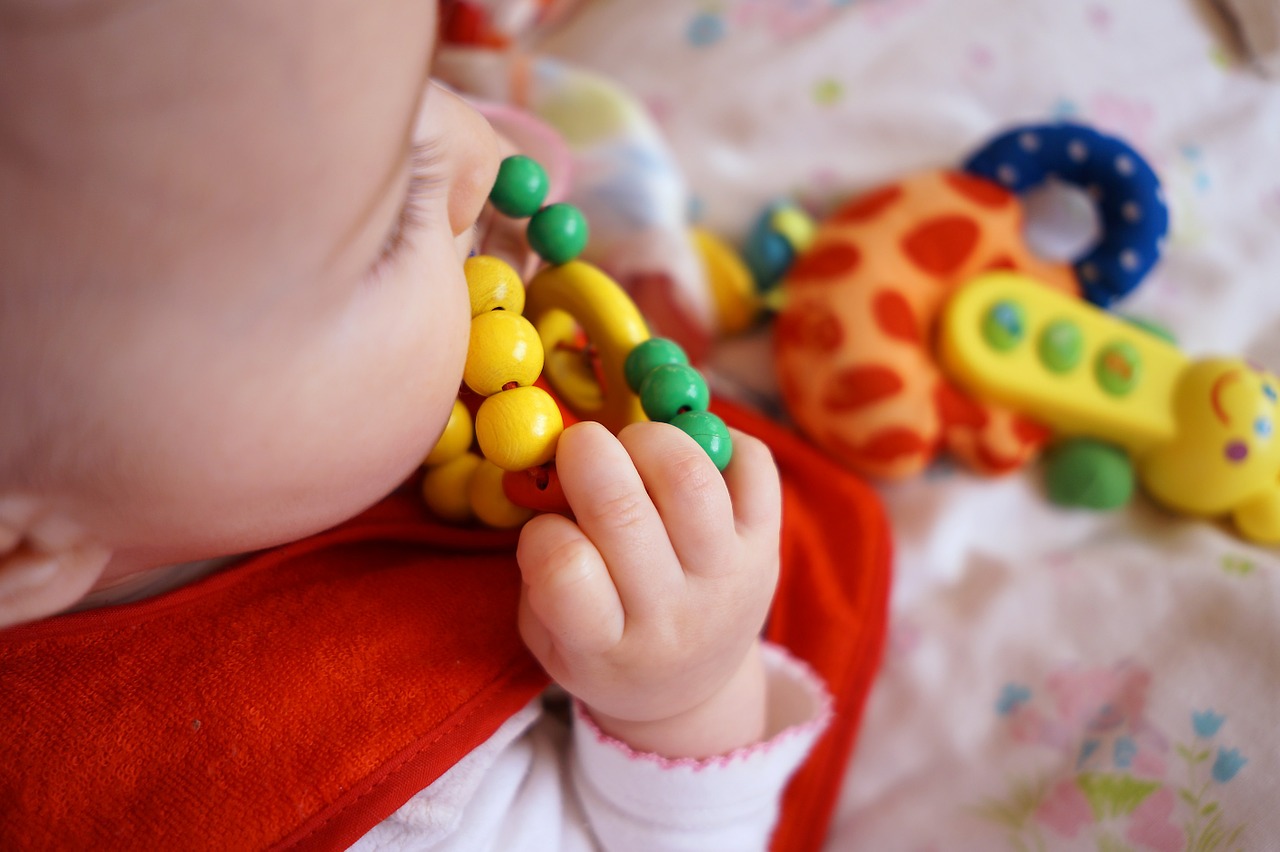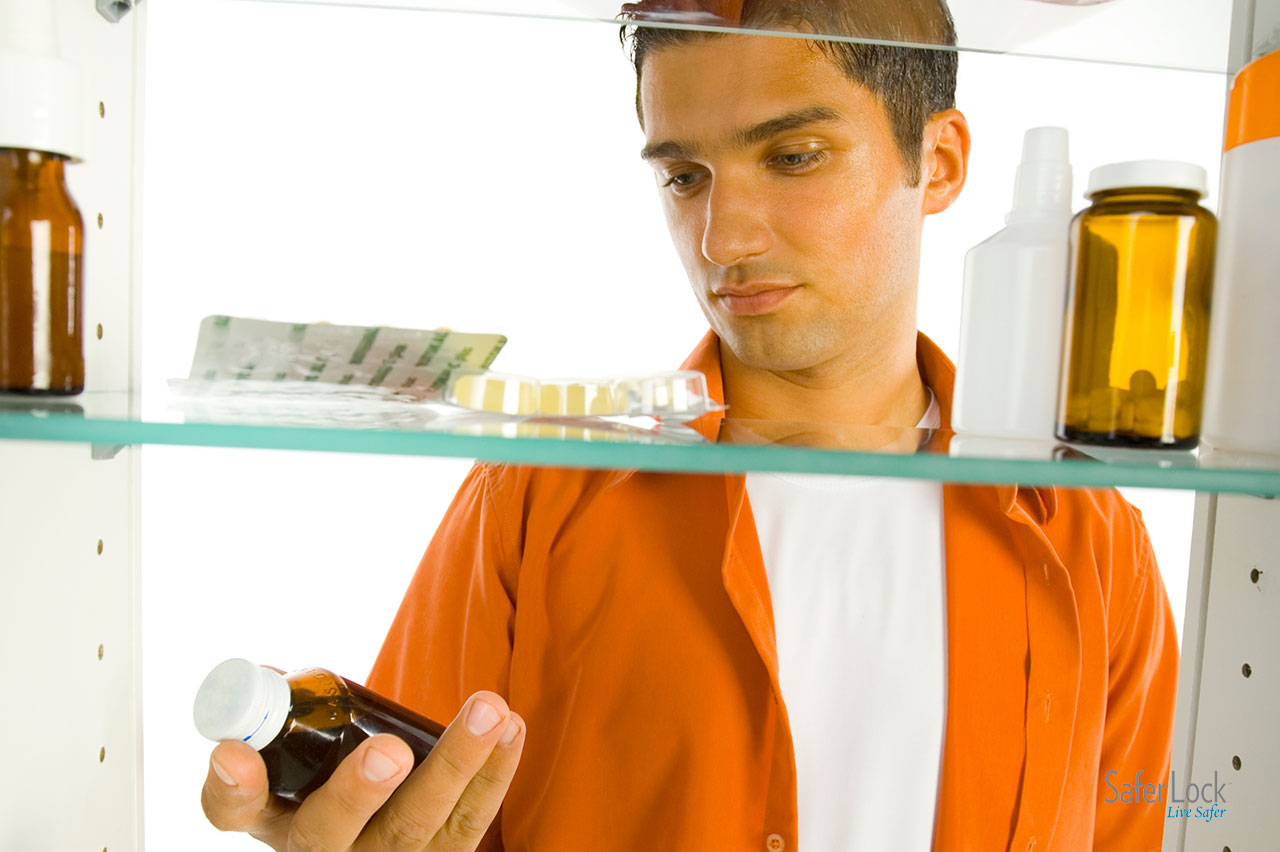The medications your doctor prescribes can pose a real threat to kids of all ages, from your toddler to your teen. While the risks are very different depending on your child’s age, the answer is always the same. Medicine storage saves lives.
Locking Medications Helps Protect Young Children
Every year more than 60,000 kids under the age of 5 are treated in US emergency rooms after getting into medications. That’s roughly 165 children every day who got into a medicine they weren’t supposed to.
Medicines can look like candy to a child, and a natural curiosity and instinct to put things in their mouth can lead to poisoning in a child. Pill bottles may be left on counters, or kept in a purse, bag, or backpack that a young child can get into. Child-proof caps will not keep most children out of a medicine bottle.
Prescription and over-the-counter medicines aren’t the only risk to young children; vitamins and supplements can pose a real threat to your child’s safety. Iron poisoning is a leading cause of death and injury in young children, many of whom inadvertently got into a bottle of multivitamins or prenatal vitamins.
Secure Medicine Storage Protects Teens
Pre-teens and teenagers are at risk of a different kind of harm from the medicines you have around your home. 52 million people over the age of 12 in the US have used prescription drugs for nonmedical reasons.
The #1 reason that teens use prescription drugs is they are easy to get from a parent’s medicine cabinet.
Many teens think that using prescription drugs is less dangerous than using other drugs, have fewer side effects, or may even help them to lose weight or study better.
The truth is that the majority of teens who develop a prescription medication addiction get their first taste of the drug through a friend or family member. And often from their parent’s own medicine cabinet.
Get Rid of Old Medications
There is no point in securing medicines that are old, damaged, or that you no longer use. Go through all of your medications and pull out old or damaged ones. Don’t forget to look through your purse, briefcase, and bags for medicines. Heat, air, light, and moisture can damage your medicines. If your medicine has changed smell, color or taste, sticks together, is cracked, chipped or harder than normal, or is past the expiration date, you should get rid of it. Don’t throw old medicine down the sink or toilet. Follow the FDA guidelines for drug disposal instead.
Out of Sight and Out of Reach
Once you have purged expired, damaged, or unwanted medicine from your home, it is time to find a good place for the rest of it. If you have young children in the home, you should always think “Out of sight and out of reach.” Don’t store medicines on countertops, in bathroom cabinets where your children keep their toothbrushes, or on bedside tables. Unless they come with specific storage instructions, most medicines should be kept in a cool, dry place - not the bathroom, where moisture and heat could damage them.
Use Locking Rx Storage
Putting your pills out of reach of your kids is only the first step to responsible medicine ownership. The next step is even more important—finding locking medicine storage. You can lock up all of your medication in a locking box, use a locking mechanism for your medicine cupboard, or use individual pill bottle locks. Pill bottles with combination locks can help protect young children from poisoning, and can also help keep even the most motivated teen (or their friends) from getting into prescription medication.
Make Medicines Travel Ready
If you will be traveling with your medication, or regularly keep it in your purse, backpack, briefcase, or bag, you need a way to secure individual bottles of medicines. Pill bottle locks are a medicine storage option perfect for meds on-the-go.
Following these easy medicine storage tips can help you avoid accidents and help prevent abuse in your household. If you have medicines in your home, sort them out, lock them up, and get them out of reach to keep your kids safe.
